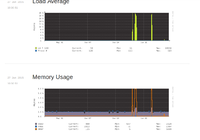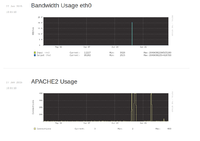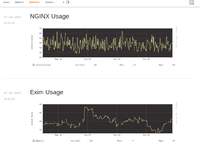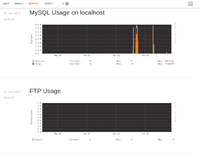Attached are monthly graphs and htop stats
apache server status doesn't hint on clear winner, there are processes from all sites.
It's 50-60 WP sites with low traffic on the 2cpu, 2gb ram, 6gb swap SSD VPS
wp-login.php anx xmlrpc.php are blocked server wide
I'm not very experienced but at this point I don't know what else I should check to find the culprit. Or at least narrow it down.
Every several days CPU and RAM usage goes through the roof and i have to restart mysql or the whole server to get back to normal for another few days.





apache server status doesn't hint on clear winner, there are processes from all sites.
It's 50-60 WP sites with low traffic on the 2cpu, 2gb ram, 6gb swap SSD VPS
wp-login.php anx xmlrpc.php are blocked server wide
I'm not very experienced but at this point I don't know what else I should check to find the culprit. Or at least narrow it down.
Every several days CPU and RAM usage goes through the roof and i have to restart mysql or the whole server to get back to normal for another few days.





